Stealing a Nation is a film of genre Documentary directed by John Pilger with John Pilger
Stealing a Nation (2004)
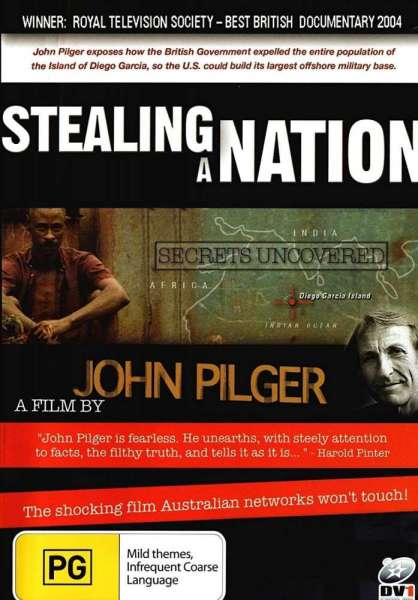
If you like this film, let us know!
Stealing a Nation is a 2004 Granada Television documentary about the British–American clandestine operation that saw the expulsion of the native Chagossian population of Diego Garcia and neighbouring islands. More than 2,000 people were exiled to Mauritius between 1967 and 1973, so that Diego Garcia could become a United States airbase (see depopulation of Chagossians from the Chagos Archipelago). The film contains a series of interviews with native Chagossians, who have been deprived of their right of return and forced to live in "abject poverty".
[...]See more...
Synopsis
In the 1960s and 70s, British governments, conspiring with American officials, tricked into leaving, then expelled the entire population of the Chagos islands in the Indian Ocean. The aim was to give the principal island of this Crown Colony, Diego Garcia, to the Americans who wanted it as a major military base. Indeed, from Diego Garcia US planes have since bombed Afghanistan and Iraq. The story is told by islanders who were dumped in the slums of Mauritius and in the words of the British officials who left a 'paper trail' of what the International Criminal Court now describes as 'a crime against humanity'.Actors
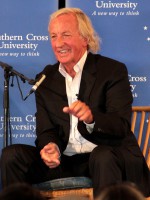
John Pilger
(Himself)
Comments
Leave comment :
Suggestions of similar film to Stealing a Nation
There are 11 films with the same actors, 8 films with the same director, 8975 with the same cinematographic genres, 8279 films with the same themes (including 321 films with the same 3 themes than Stealing a Nation), to have finally 70 suggestions of similar films.If you liked Stealing a Nation, you will probably like those similar films :
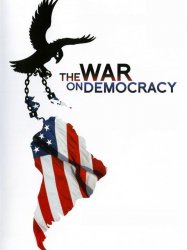
The War on Democracy (2007)
, 1h36Directed by John Pilger
Genres War, Documentary, Historical
Themes Seafaring films, Transport films, Documentary films about law, Documentary films about historical events, Documentary films about politics, Political films, Films about Latin American military dictatorships
Actors John Pilger, Ronald Reagan
Rating80%






Apartheid Did Not Die (1998)
, 51minutesDirected by John Pilger
Genres Documentary
Themes Films set in Africa, Films about racism, Documentary films about racism, Documentary films about law, Documentaire sur une personnalité, Documentary films about politics, Political films
Actors John Pilger
Rating68%






The New Rulers of the World (2001)
, 1h5Directed by John Pilger
Origin United-kingdom
Genres Documentary
Themes Documentary films about politics, Political films
Actors John Pilger
Rating77%





John Pilger explores the impact of globalisation, taking Indonesia as his prime example, a country that the World Bank described as a "model pupil" until its 'globalised' economy collapsed in 1998. Under scrutiny are the increasingly powerful multinationals and the institutions that back them, notably the IMF and The World Bank.
 , 1h14
, 1h14Directed by John Pilger
Origin United-kingdom
Genres Documentary
Themes Documentary films about politics, Political films
Actors John Pilger
Rating78%





John Pilger and Alan Lowery traveled to Iraq with Denis Halliday, a former assistant secretary-general of the United Nations who resigned over what he called the "immoral policy" of economic sanctions. There they expected to find a suffering nation held hostage to the compliance of a dictator, Saddam Hussein. What they found was a country being slowly strangled by a draconian U.S./U.K. blockade.
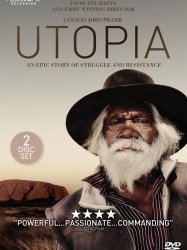
Utopia (2013)
, 1h50Directed by John Pilger
Genres Documentary
Themes Seafaring films, Transport films, Documentary films about law, Documentary films about war, Documentary films about historical events, Political films
Actors John Pilger
Rating76%





The film begins with Pilger's journey to Utopia to observe the changes that have occurred in Aboriginal Australia between 1985, when he featured the poverty in the documentary The Secret Country and the time of filming, 2013. After almost three decades, Pilger discovers that Aboriginal families are still living in extremely overcrowded and poorly sanitized asbestos shacks, and are plagued by easily curable diseases. The Secretary General of Amnesty International, Salil Shetty, who happens to be in Utopia at the same time as Pilger, ponders why one of the world's richest countries cannot solve the problem of Aboriginal poverty and states that the inequity and injustice could be fixed if the will to do so existed.
[...]See more...
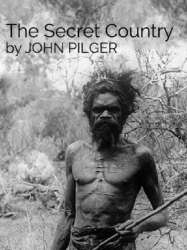 , 53minutes
, 53minutesDirected by John Pilger
Genres Documentary, Historical
Themes Seafaring films, Transport films, Documentary films about law
Actors John Pilger
Rating74%





The Secret Country: The First Australians Fight Back shows that when British colonists first arrived in Australia, they saw Aboriginal Australians as having no proprietorial rights to their land because they didn't cultivate it. As a result of this, no treaty was ever signed. Aboriginal Australians had no rights under British colonial rule and much of their resistance to British colonisation wasn't recorded. John Pilger aims to document some of the historical struggles of Aboriginal people as they were driven from their lands and he follows some of the major events relating to Aboriginal rights throughout the 20th century.

The War You Don't See (2010)
, 1h37Directed by John Pilger
Origin United-kingdom
Genres Documentary
Themes Documentary films about war, Documentary films about historical events, Political films
Actors John Pilger
Rating83%





The film begins with footage of an unreported July 12, 2007 Baghdad airstrike and black and white stills of the victims of the U.S. Occupation of Iraq. In his opening narration Pilger quotes World War I British Prime Minister David Lloyd George’s comment to Guardian editor C. P. Scott that, “If the people really knew the truth, the war would be stopped tomorrow.” He goes on to state that this film will draw on his own experience as a war correspondent to question the role of the media in conflicts such as Iraq and Afghanistan.
 , 52minutes
, 52minutesDirected by John Pilger
Genres Documentary
Themes Documentary films about war, Documentary films about historical events, Political films
Actors John Pilger
Rating78%





The documentary attempts to contrast the proclaimed aims of the War on Terror with, what Pilger sees, as the humanitarian failures in countries such as Afghanistan and Iraq. It asserts that the Afghan mujahideen and Afghan Arabs including Osama bin Laden, from which later both the Taliban and Al Qaeda were created, received support from the United States and by Britain's MI6. Pilger alleges that President Jimmy Carter authorised a five-hundred million dollar programme to help set up the native Afghan mujahideen, starting as early as six months prior to the Soviet invasion into Afghanistan.

Vietnam: The Last Battle (1995)
, 51minutesGenres Documentary
Themes Documentary films about war, Documentary films about historical events, Political films
Actors John Pilger
Pilger introduces the film, on the 20th anniversary of the end of the conflict, from the roof of the U.S. Embassy, Saigon, where the last American troops had departed by helicopter. Veteran Bobby Muller, interviewed on China Beach, calls the war a lie and talks about his own belief of this soon after his landing there in 1965. Pilger states that Ho Chi Minh had quoted from the U.S. Declaration of Independence and sought support from Washington for his nation’s independence. An elderly woman, who lost of her husband and five children fighting the French and the Americans, is shown as an exemplar of the struggle for independence.
[...]See more...

Welcome to Australia (1999)
, 50minutesGenres Documentary
Themes Seafaring films, Sports films, Transport films, Documentary films about sports, Documentary films about law
Actors John Pilger
Rating75%





In the build-up to the Sydney 2000 Summer Olympic Games, Pilger finds that the elaborate preparations for the Olympics are overshadowing the reality of many Australia's Aboriginal citizens, who he argues continue to remain excluded, impoverished and mistreated in Australia. The film uses sport as a mechanism to draw attention to and tell the story of the injustices endured by Aboriginal Australians while also arguing that Aboriginal Australians could have had a much more significant impact on Australian sport if they had not been deliberately prevented from doing so.
 Connection
Connection